Disused art deco cinema needs 'magic money tree'
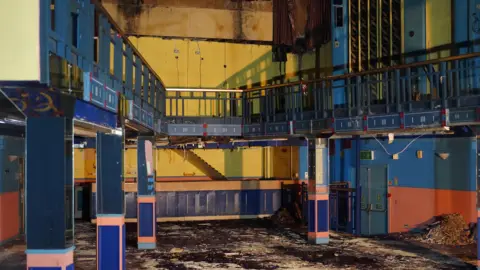 BBC
BBCThe owner of a former art deco cinema says memories "won't pay the bills" after councillors spared the building from demolition.
The old cinema on Hobson Street, Cambridge, first opened in 1921 and is clad in an Ancient Egyptian-style white faience tile facade.
It became a bingo hall in 1972 but has stood empty for 15 years, leaving a cracked exterior, crumbling and damp inside and metal barriers for doors. Cambridge City Council rejected plans put forward by owner Mark Richer to demolish 21 Hobson Street and reconfigure two neighbouring buildings in November.
A spokesperson for the council said it had "consistently advised" the applicants to design a scheme which retains the building's facade.

Mr Richer, who bought the former Central Cinema in 2011, wanted to replace the building with space for 300 office workers and a community area.
He planned to combine three buildings, including 16-17 and 17-18 Sidney Street, home to Itsu and Urban Outfitters, while keeping the shop-front facades.
Council planners described the old cinema building as "iconic" and said it could lead to "heritage harm" if it were demolished.
The project received a handful of objections including from Historic England, also on heritage grounds.
The Twentieth Century Society said it "strongly" believed a solution could be found to conserve the building, while the Cinema Theatre Association objected to plans to destroy a "rare example of neo-Egyptian style" cinema architecture.
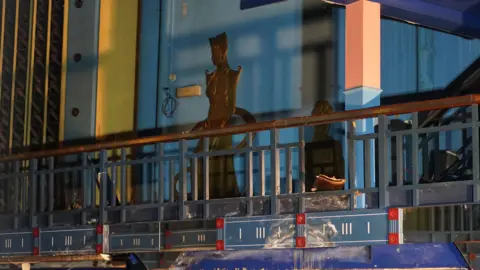
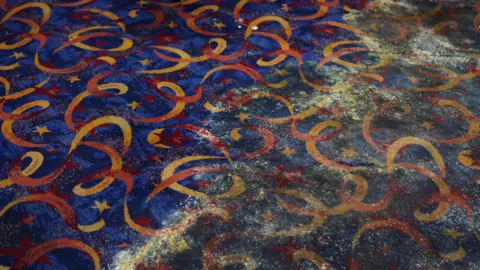
Mr Richer said he was considering appealing the decision, but insisted he had exhausted all options for turning it back into a cinema.
"If somebody could shake a magic money tree and spend £5m or £6m turning this back into a usable shell for a cinema, a cinema would rent it.
"But a cinema chain's never going to spend that to get it into this state."
Mr Richer's proposal would merge three buildings while leaving the front of Itsu and Urban Outfitters on Sidney Street unchanged, but destroying the cinema facade in the process.
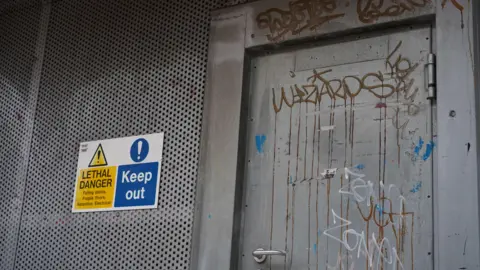
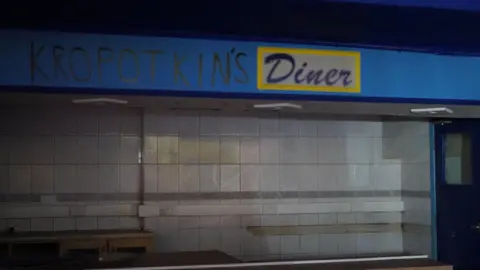
The cinema lost its roof and original interior in a fire in 1939, before being remodelled internally by William Glenn, ABC's in-house architect, and re-opening in 1940.
The building was converted to a bingo hall in 1972 and its interiors were significantly altered, with a new mezzanine and carpeting.
It still has a few original features such as the staircases with their cast iron baluster rails.
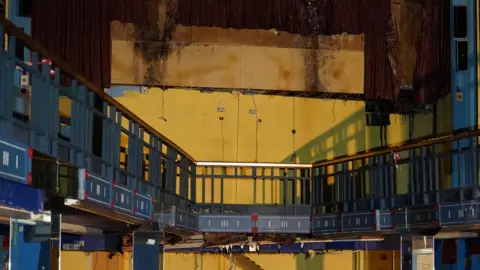
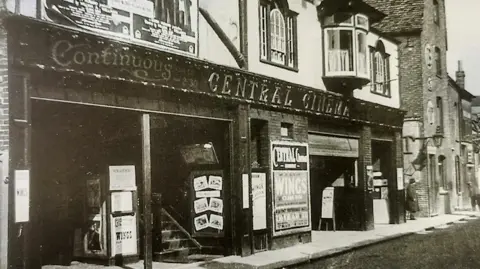 Museum of Cambridge
Museum of CambridgeThe building holds memories for many people, but Mr Richer said he wanted to build a facility that would bring jobs and money to the local economy.
"We never lose those memories," he said.
"The country can't live on memories, those memories won't pay the bills."
He insisted he had "tried many different ways" to keep the facade but had "absolutely not managed to find something".
A Cambridge City Council spokesperson said: "The development of the site need not involve the level of harm and extent of demolition proposed to the conservation area.
"We hope the applicants will work with the council to explore alternative options rather than appeal."
Follow Cambridgeshire news on BBC Sounds, Facebook, Instagram and X.
